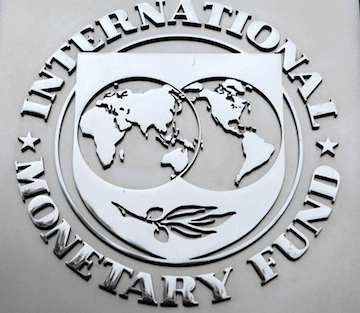

As the world increasingly embraces digital currencies, Africa stands at a unique crossroads. With its young population, technological advancements, and economic potential, the continent is seen as a promising frontier for cryptocurrency adoption.
But the question remains: Is Africa ready for cryptocurrency? Here's a closer look at the factors shaping the continent's readiness for this digital revolution.
The growing popularity of cryptocurrency in Africa
Cryptocurrency has rapidly gained traction in Africa, with countries like Nigeria, South Africa, Kenya, and Ghana leading the charge. According to recent reports, Nigeria has one of the highest rates of cryptocurrency usage in the world, driven by a young and tech-savvy population.
The adoption of digital currencies in Africa is primarily fueled by the need for financial inclusion, the desire to circumvent stringent banking systems, and the increasing familiarity with blockchain technology.
For many Africans, cryptocurrencies offer a means of bypassing traditional financial barriers. In regions where access to banking services is limited, digital currencies provide an alternative for making transactions, saving money, and even remittances.
The ease of mobile money platforms, already widely used across the continent, complements the adoption of cryptocurrencies, making them more accessible to the masses.

The challenges of cryptocurrency adoption
Despite the growing interest, several challenges hinder widespread cryptocurrency adoption in Africa. One of the most significant barriers is regulatory uncertainty.
Many African governments are still grappling with how to regulate digital currencies. The lack of clear regulatory frameworks has led to concerns about the potential for fraud, money laundering, and other illicit activities.
Some governments, like Nigeria, have taken a cautious approach, restricting the use of cryptocurrencies, while others, like South Africa, are exploring ways to regulate the market effectively.
Another challenge is the volatile nature of cryptocurrencies. The highly fluctuating prices of digital assets can be both a boon and a bane. While some investors have made significant gains, others have faced substantial losses.

This volatility makes cryptocurrencies a risky investment, especially for individuals in developing economies where financial stability is paramount.
The role of education and awareness
Education and awareness are crucial for the widespread adoption of cryptocurrencies in Africa. Many Africans still lack a clear understanding of how digital currencies work and the potential benefits and risks involved.
Financial literacy initiatives and educational campaigns are essential to equip the population with the knowledge needed to navigate the world of cryptocurrencies safely.
Several organisations and startups are already working towards increasing cryptocurrency literacy in Africa. They offer training sessions, workshops, and online resources to help people understand the basics of blockchain technology, digital wallets, and the different types of cryptocurrencies available.
Opportunities for growth and innovation
Despite the challenges, the potential for growth and innovation in the African cryptocurrency market is immense. The continent's young population, with a median age of 19.7 years, is more likely to adopt new technologies.
Moreover, the widespread use of mobile phones and the internet provides a solid foundation for digital currency adoption.
Cryptocurrencies also offer opportunities for economic empowerment and entrepreneurship. They can provide access to global markets, enabling Africans to participate in the global economy without the need for traditional banking systems.

Additionally, blockchain technology can drive innovation in various sectors, including finance, supply chain management, and healthcare.
The future of cryptocurrency in Africa
As Africa continues to navigate the complexities of cryptocurrency adoption, several key developments could shape its future. The establishment of clear regulatory frameworks will be critical in fostering a safe and transparent environment for digital currency transactions.
Governments and financial institutions must work together to create policies that protect consumers while encouraging innovation.
Moreover, partnerships between the public and private sectors can drive the growth of the cryptocurrency market in Africa. Collaborations with international cryptocurrency platforms and tech companies can bring expertise and resources to the continent, accelerating the adoption process.
So, is Africa ready for cryptocurrency? The answer is a resounding almost. The continent is making significant strides in embracing digital currencies, driven by a young and dynamic population.
However, challenges such as regulatory uncertainty, market volatility, and the need for education must be addressed to fully realise the potential of cryptocurrencies in Africa.
As the digital revolution continues to unfold, Africa has the opportunity to become a leader in cryptocurrency adoption. With the right policies, infrastructure, and educational initiatives, the continent can harness the power of digital currencies to drive economic growth, financial inclusion, and innovation. The journey may be challenging, but the destination promises to be transformative.
Read Full Story























Facebook
Twitter
Pinterest
Instagram
Google+
YouTube
LinkedIn
RSS